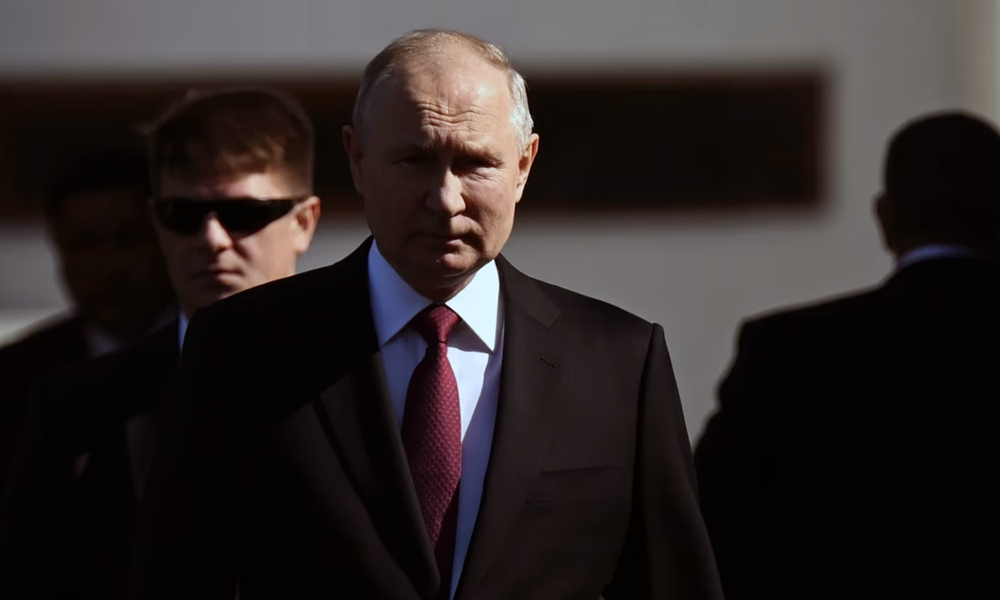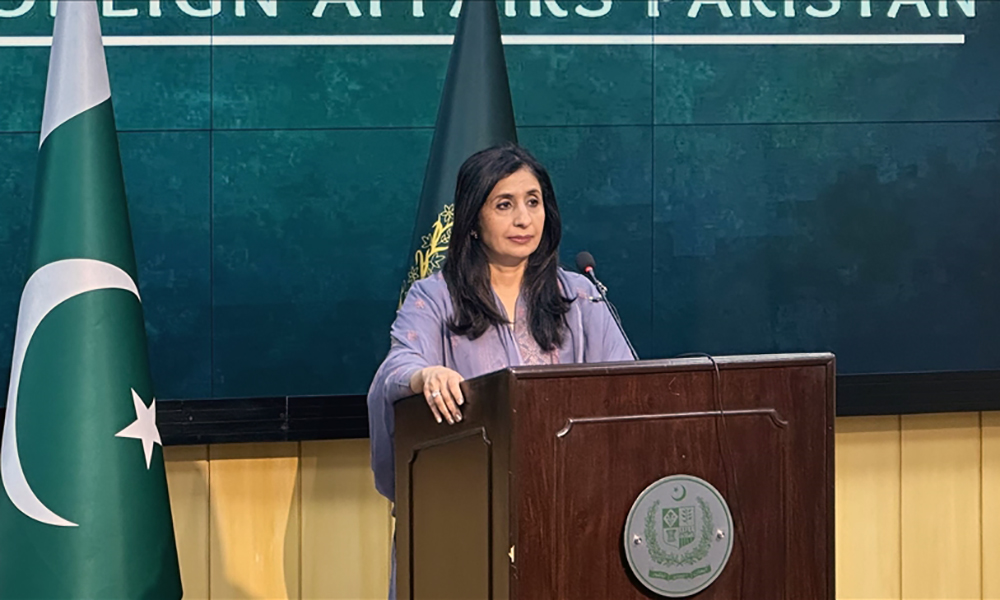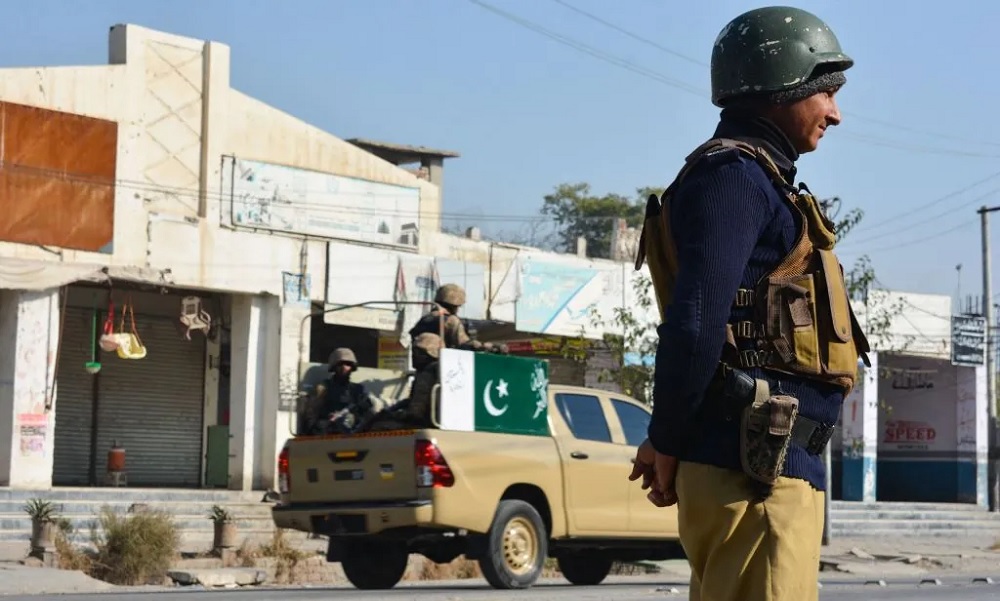Russia said on Monday it would practise the deployment of tactical nuclear weapons as part of a military exercise after what the Moscow said were threats from France, Britain and the United States, Reuters reported.
Since Russia invaded Ukraine in 2022, Russia has repeatedly warned of rising nuclear risks - warnings which the United States says it has to take seriously though U.S. officials say they have seen no change in Russia's nuclear posture.
Russia says the United States and its European allies are pushing the world to the brink of confrontation between nuclear powers by supporting Ukraine with tens of billions of dollars of weapons, some of which are being used against Russian territory.
Russia's defence ministry said it would hold military drills including practice for the preparation and deployment for use of non-strategic nuclear weapons. It said the exercises were ordered by President Vladimir Putin.
"During the exercise, a set of measures will be carried out to practise the issues of preparation and use of non-strategic nuclear weapons," the ministry said.
Missile forces in the Southern Military District, aviation and the navy will take part, the defence ministry said.
The exercise is aimed at ensuring Russia's territorial integrity and sovereignty "in response to provocative statements and threats by certain Western officials against the Russian Federation", it said.
Russia and the United States are by far the world's biggest nuclear powers, holding more than 10,600 of the world's 12,100 nuclear warheads. China has the third-largest nuclear arsenal, followed by France and Britain.
Russia has about 1,558 non-strategic nuclear warheads, according to the Federation of American Scientists, opens new tab, though there is uncertainty about exact figures for such weapons due to a lack of transparency, read the report.
No power has used nuclear weapons in war since the United States unleashed the first atomic bomb attacks on the Japanese cities of Hiroshima and Nagasaki in 1945.
Major nuclear powers routinely check their nuclear weapons but very rarely publicly link such exercises to specific perceived threats in the way that Russia has.
NUCLEAR RISKS
U.S. President Joe Biden said last year that he felt there was no real prospect of Russia using nuclear weapons but CNN reported that top U.S. officials did contingency planning, opens new tab for a potential Russian nuclear strike against Ukraine in 2022.
Some Western and Ukrainian officials have said Russia is bluffing over nuclear weapons to scare the West, though the Kremlin has repeatedly indicated that it would consider breaking the nuclear taboo if Russia's existence was threatened, Reuters reported.
"We do not see anything new here," said Andriy Yusov, a spokesperson for Ukrainian military intelligence. "Nuclear blackmail is a constant practice of Putin's regime."
The defence ministry, run by long-term Putin ally Sergei Shoigu, did not say which specific Western officials it was referring to in its statement.
The Kremlin said that it was in response to remarks by French President Emmanuel Macron, British officials and a representative of the U.S. Senate.
Macron has in public raised the idea of sending European troops to fight Russia in Ukraine while British Foreign Secretary David Cameron said that Ukraine had a right to use the weapons provided by London to strike targets inside Russia.
Kremlin spokesman Dmitry Peskov said Western statements about sending NATO soldiers to Ukraine amounted to "a completely new round of escalation of tension - it is unprecedented, and of course it requires special attention and special measures".
Putin warned the West in March that a direct conflict between Russia and the U.S.-led NATO military alliance would mean the planet was one step away from World War Three but said hardly anyone wanted such a scenario, read the report.
WAR GAMES
NATO, created in 1949 to provide collective security against the Soviet Union, is currently holding the "Steadfast Defender" exercise, its largest since the end of the Cold War. NATO has not said whether it would include rehearsal of any nuclear element.
A nuclear command exercise by NATO in 1983 prompted fears at the top levels of the Kremlin that the United States was preparing for a surprise nuclear attack.
Putin has faced calls inside Russia from some hardliners to change Russia's nuclear doctrine, which sets out the conditions under which Russia would use a nuclear weapon, though Putin said last year he saw no need for change.
Broadly, the doctrine says such a weapon would be used in response to an attack using nuclear or other weapons of mass destruction, or the use of conventional weapons against Russia "when the very existence of the state is put under threat".
Putin casts the war as part of a centuries-old battle with the West which he says humiliated Russia after the Berlin Wall fell in 1989 by enlarging NATO and encroaching on what Moscow considers to be Russia's historical sphere of influence.
Ukraine and its Western backers say the war is an imperial-style land grab by a corrupt dictatorship. Western leaders have vowed to work for a defeat of Russian forces in Ukraine, while ruling out any deployment of NATO personnel there.












































